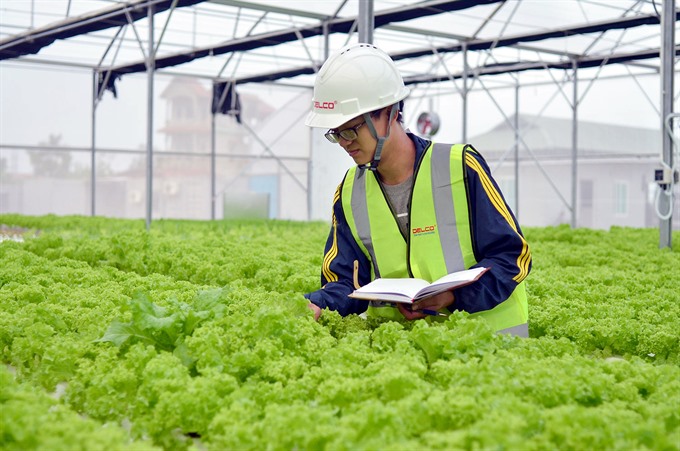The spirit of entrepreneurship is key to the development of startup businesses in Southeast Asia and for Vietnamese startups in particular, according to Dinh Thi Quynh Van, general director of PricewaterhouseCoopers (PwC) Vietnam.

The spirit of entrepreneurship is key to the development of startup businesses in Southeast Asia and for Vietnamese startups in particular, according to Dinh Thi Quynh Van, general director of PricewaterhouseCoopers (PwC) Vietnam.
The top manager of the international UK-based auditor told Vietnam News Agency on the sidelines of the World Economic Forum on ASEAN (WEF ASEAN 2018) that entrepreneurs should be encouraged to think, develop and implement new ideas as well as apply new technologies in their businesses.
“It’s good to know their spirit is having good impacts on other local firms as they are bringing innovation to the Vietnamese business community, while there is barely any data on their contributions to the country’s economic growth,” Van said.
But there are three problems for local companies, which are science-technology application, investment in science-technology-human development and corporate governance, according to Van.
“Local firms have fallen behind the world as the three factors have resulted in low quality of products, low production capacity and high goods prices, making Vietnamese firms less competitive in the international market.”
“Whoever wants to succeed must spend on the three factors – technology, human and governance – and this has remained a difficult topic for every local company because their priority at the moment is how to improve their core business activities.”
Leaders of tech startups and venture capital (VC) firms in Southeast Asia shared her view over regional startups.
Tan Hooi Ling, Co-Founder of the Singaporean platform-based transportation firm Grab, told a panel discussion during the WEF ASEAN 2018 last week that the success of a startup depends on whether its founder knew how to have good people to discuss and debate while making mistakes and fixing them in the startup’s early stage.
Startup businesses should spend money on developing their products and staff, try to move the business ahead of global trends and implement an ideal business model, Tan said.
Regarding technological advancements, Facebook’s vice president of public policy in Asia, Simon Milner, said startups were only able to grow in the US where there was an ideal ecosystem for them.
But as the world had undergone significant technological development, young people became able to follow their dreams and brilliant ideas, and there were plenty of opportunities to grow ideas into businesses, he said.
The case of Facebook, starting as a social network inside a university in 2004, proved there were plentiful opportunities for startups to enter the market, especially those in the Southeast Asia region, where people were eager to learn new things, Milner added.
Optimism about the ASEAN startup community was also affirmed by other panelists.
Edward Thai, partner of the US-based early-stage venture 500 Startups, said he felt pessimistic about the future of Viet Nam’s startup community back in 2001, but now he’d turned optimistic.
Major driving factors for the development of ASEAN startups were macroeconomic growth and internet access, which is higher than in some regions of the world, he said.
What startups had to face in ASEAN were the differences in each country’s environment and culture, Thai said, adding that the regional and international integration had helped diminish those differences across the border.
Vietnamese people, for example, were getting used to the fact that young graduates would choose to go out and set up their own careers rather than working for big corporations, he said.
Another factor that had supported local startups was the Government’s desire and determination to turn the country into a startup nation, so it was getting easier for young people than years ago, Edward said.
According to Shailendra Singh, managing director of the Singapore-based Sequoia Capital, there was increasing accessibility to the capital market and more opportunities are arising in the Southeast Asia, so pessimism shouldn’t be part of the vocabulary of entrepreneurs.
“Founders do magical things from nothing” even when “the world around them may show no hope,” he said, adding that students should drive themselves to become founders and entrepreneurs, building something from open sources with limited capital. — VNS





